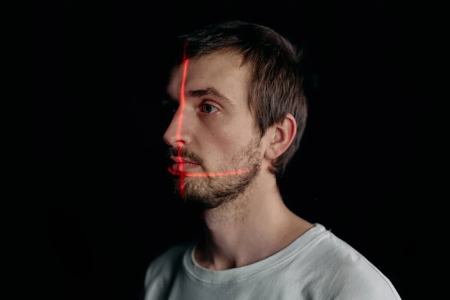‘World-leading’: new system promises to make ID verification a breeze
By
Maan
- Replies 45
A groundbreaking shift in how Australians will verify their identity is on the horizon.
What initially seemed like a simple idea is now causing waves in the tech world, with promises to make everyday transactions safer and easier.
What’s behind this innovative move, and how could it change the way we interact with banks and businesses forever?
Australia's largest bank, Commonwealth Bank (CBA), partnered with Services Australia to trial a new myGov verification program.
The aim was to allow Australians to verify their identity with banks and businesses without submitting copies of their ID documents.
The trial utilised the Medicare card in the myGov app’s digital wallet to confirm identity.
Participants scanned a QR code within the app at one of Commonwealth Bank’s (CBA) branches in Canberra.
By agreeing to share information from a ‘test Medicare card’ electronically, users helped CBA access government-verified data, like their name and valid Medicare enrolment, without disclosing their Medicare number.
Minister for Government Services and NDIS Bill Shorten highlighted that the initiative was designed to protect personal information.
'It may mean in future you wouldn’t need to hand over copies of your ID documents for banks to store on their own systems, reducing the data they need to collect,' Shorten said.
'Banks would be able to get confirmation of a person’s identity, verified by the government, within seconds.'
The goal was to reduce businesses' need to store sensitive documents, thereby minimising the risk of cyber attacks.
This pilot was part of the broader Trust Exchange (TEx) initiative, announced in August of the previous year.
TEx, which wasn’t a wallet or app, allowed Australians to verify their identity based on government-held information.
Other successful TEx trials had already taken place, including a Brisbane GP clinic testing the technology for patient registration in December.
In this trial, participants scanned a QR code using the myGov app and confirmed which information, such as details from Medicare, DVA veterans' cards, or Centrelink concession cards, they consented to share with the clinic.
Shorten referred to the TEx system as 'world-leading,' noting that it eliminated the need for businesses to request hard copies of documents.
He likened it to 'when Australians moved from using cheques to tap and pay - it’s revolutionary'.
Shorten emphasised that TEx was based on an opt-in model, but expressed hope that Australians would embrace it due to its convenience, control, and security.
The Australian government would review the trial results to determine the next steps.

Do you think this tech will change the way we interact with businesses forever? Let us know in the comments!
What initially seemed like a simple idea is now causing waves in the tech world, with promises to make everyday transactions safer and easier.
What’s behind this innovative move, and how could it change the way we interact with banks and businesses forever?
Australia's largest bank, Commonwealth Bank (CBA), partnered with Services Australia to trial a new myGov verification program.
The aim was to allow Australians to verify their identity with banks and businesses without submitting copies of their ID documents.
The trial utilised the Medicare card in the myGov app’s digital wallet to confirm identity.
Participants scanned a QR code within the app at one of Commonwealth Bank’s (CBA) branches in Canberra.
By agreeing to share information from a ‘test Medicare card’ electronically, users helped CBA access government-verified data, like their name and valid Medicare enrolment, without disclosing their Medicare number.
Minister for Government Services and NDIS Bill Shorten highlighted that the initiative was designed to protect personal information.
'It may mean in future you wouldn’t need to hand over copies of your ID documents for banks to store on their own systems, reducing the data they need to collect,' Shorten said.
'Banks would be able to get confirmation of a person’s identity, verified by the government, within seconds.'
The goal was to reduce businesses' need to store sensitive documents, thereby minimising the risk of cyber attacks.
This pilot was part of the broader Trust Exchange (TEx) initiative, announced in August of the previous year.
TEx, which wasn’t a wallet or app, allowed Australians to verify their identity based on government-held information.
Other successful TEx trials had already taken place, including a Brisbane GP clinic testing the technology for patient registration in December.
In this trial, participants scanned a QR code using the myGov app and confirmed which information, such as details from Medicare, DVA veterans' cards, or Centrelink concession cards, they consented to share with the clinic.
Shorten referred to the TEx system as 'world-leading,' noting that it eliminated the need for businesses to request hard copies of documents.
He likened it to 'when Australians moved from using cheques to tap and pay - it’s revolutionary'.
Shorten emphasised that TEx was based on an opt-in model, but expressed hope that Australians would embrace it due to its convenience, control, and security.
The Australian government would review the trial results to determine the next steps.
Key Takeaways
- Commonwealth Bank (CBA) and Services Australia launched a trial to use the myGov app’s Medicare card for identity verification.
- The system allows participants to securely share their details without revealing sensitive information like their Medicare number.
- Minister Bill Shorten described the program as 'world-leading,' aiming to reduce businesses' need to store personal documents.
- The trial is part of the larger Trust Exchange (TEx) initiative, which could revolutionise how Aussies verify their identity with businesses.
Do you think this tech will change the way we interact with businesses forever? Let us know in the comments!








